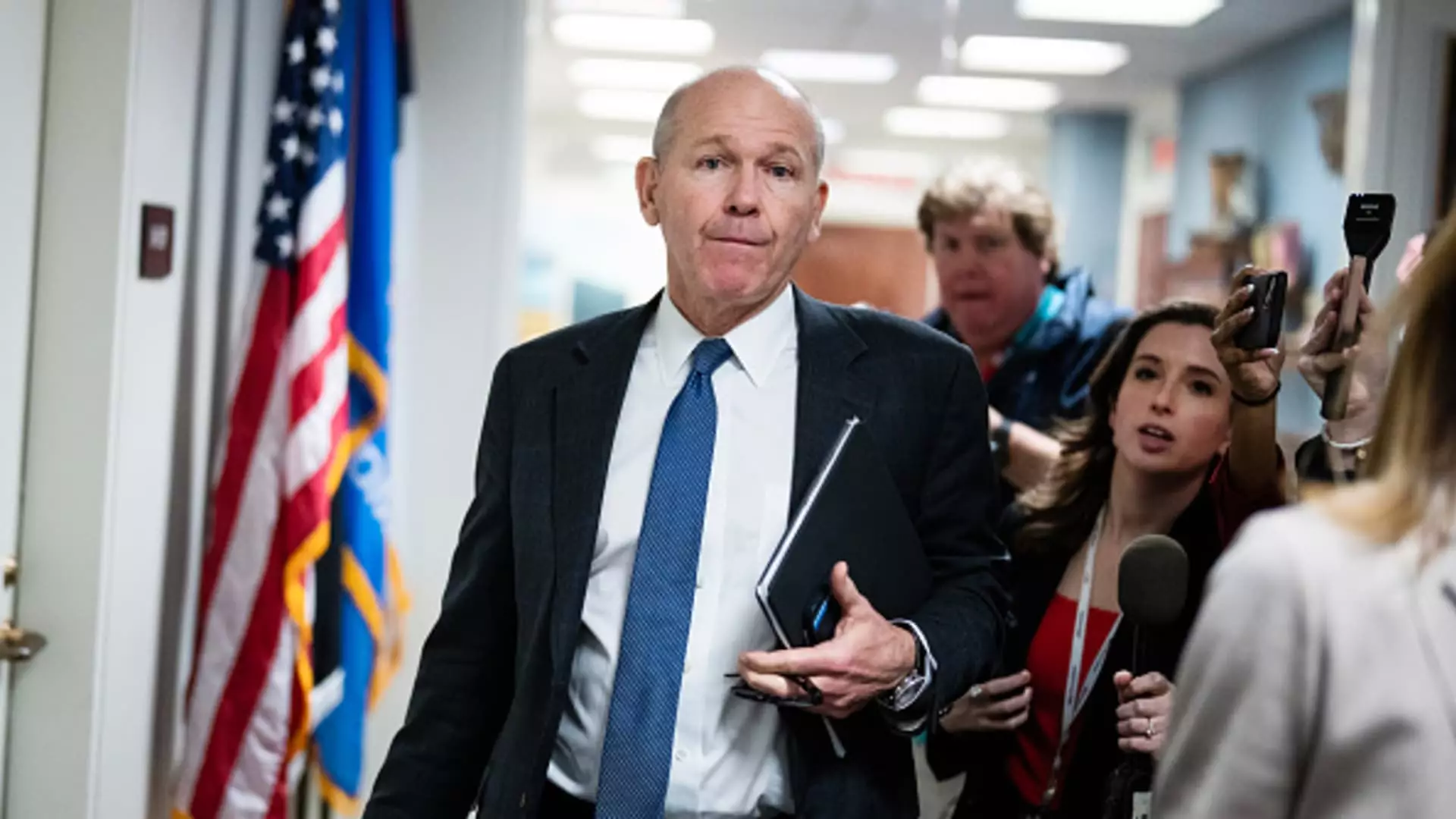Boeing CEO Dave Calhoun admitted to a Senate panel that the company’s culture is far from perfect, just hours before facing fresh whistleblower claims alleging mishandling of hundreds of defective parts. This revelation comes as the company is still recovering from the fallout of two fatal crashes and is working to improve employee training, aircraft quality, and its tarnished safety reputation.
The whistleblower claims, filed by Sam Mohawk, a quality assurance investigator at Boeing, allege that the company lost track of damaged or substandard parts, which were likely being installed on airplanes. Mohawk also stated that he was retaliated against and instructed by supervisors to conceal evidence from the Federal Aviation Administration (FAA). The allegations mentioned dozens of important parts stored outside during an FAA inspection, including rudders, winglets, and stabilizers.
The FAA reported an increase in the number of reports from Boeing staff following an incident in January. While the agency assured thorough investigations of all reports, it declined to comment on the specifics of the recent allegations. Boeing is currently reviewing the whistleblower claims and emphasizing the importance of encouraging employees to report all concerns for the safety of their airplanes and the flying public.
Boeing is facing potential U.S. prosecution after violating a 2021 settlement linked to the 737 Max crashes that claimed 346 lives. This violation would have expired soon after a recent incident involving an Alaska Airlines door panel. The Justice Department has until July 7 to decide on prosecution, while family members of crash victims are set to attend the Senate hearing to urge accountability and justice.
The FAA has taken a firm stance against Boeing, vowing to keep inspectors at the company’s facilities until satisfied with safety improvements. Boeing, on the other hand, has been addressing quality flaws in its jets and working to reduce production issues. The halt in increasing Max production has affected Boeing’s cash flow, leading to lower production and deliveries, which subsequently impacted its stock value.
In addition to internal issues, Boeing is also grappling with supply chain challenges, including Spirit AeroSystems’ revelation of falsified documents related to titanium entering the supply chain. Despite this, more than 1,000 tests confirmed the material as “airplane-grade titanium.” Boeing is in the process of acquiring Spirit, potentially finalizing the deal in the first half of the year.
Boeing’s ongoing struggles with internal culture, safety, and compliance highlight the need for continued oversight and accountability within the aerospace industry. As the company navigates through these challenges, transparency, improved training, and quality control remain key areas of focus to rebuild trust and ensure the safety of its aircraft and passengers.

